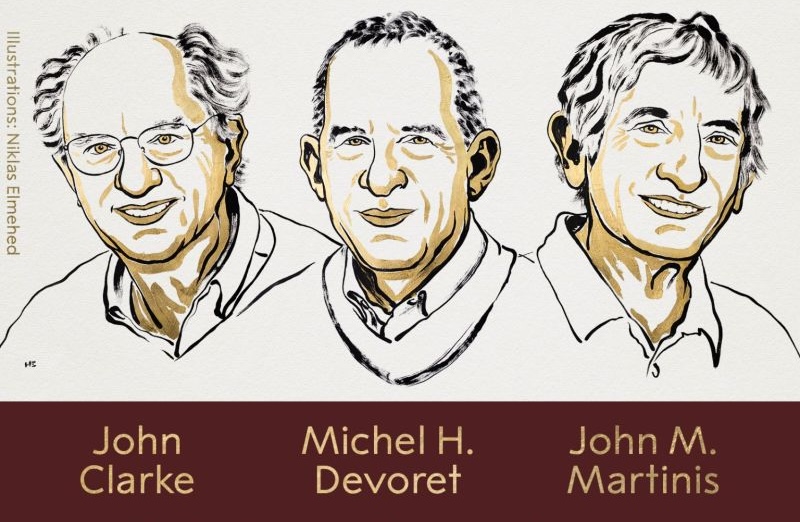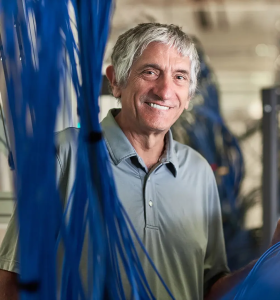
Wisconsin CHIPS congratulates the 2025 laureates of The Nobel Prize in Physics—John Clarke, Michel H. Devoret, and John M. Martinis—for observation of quantum-mechanical tunneling in an electrical circuit based on superconductors!
Clarke was Martinis’s doctoral advisor at the University of California at Berkeley, where Devoret was also doing postdoctoral research with Clarke. Devoret and Martinis rigorously analyzed a Josephson junction (tiny electronic device made from superconducting materials) with not only the standard qualitative data, but with quantitative collection. In 1985, the team presented their findings on this work, showcasing that the microwave signals in the device behaved according to quantum mechanics. Although the connection was still unknown at that time, their shared work would become the basis for quantum computing.

Excitingly, laureate Martinis has significant connections to the University of Wisconsin–Madison. After breakthrough advancements as part of Google’s Quantum AI Lab, Martinis co-founded Qolab in 2022 with Alan Ho and UW–Madison professor/CHIPS researcher Robert McDermott. McDermott, also advised at Berkeley by Laureate Clarke, specializes in scalable quantum coherence and measurement. He has co-authored several publications with Martinis and Clarke over decades.
At Qolab, Martinis serves as CTO, McDermott as Head of Hardware, and Ho as CEO. The company is based in Madison and is the first quantum startup incubated at UW–Madison. Qolab believes that advanced semiconductor chips are the path to achieving usable quantum computers, and that collaboration across academia and industry is essential to this goal. The team aims to improve coherence in superconducting qubits, which are essential, high-powered pieces of quantum computing processors. Qolab has already garnered significant funding toward building a utility-scale quantum computer with higher-quality qubits, now backed by Nobel Prize–winning research.
The company has also hired UW–Madison Physics professor Britton Plourde as Quantum Hardware Engineer, who works half-time at both institutions. Laureate Clarke was Plourde’s postdoctoral research advisor at Berkeley, where they studied quantum coherence in superconducting qubits. Plourde has also co-authored multiple publications with both Martinis and McDermott, in addition to quantum project collaborations with McDermott at UW–Madison from as early as 2009.
Wisconsin CHIPS is proud to recognize Clarke, Devoret, and Martinis and their collaborators at the University. This is an incredible achievement for the Wisconsin quantum and semiconductor communities.
• • •
Feature image: John Clarke, Michel H. Devoret, and John M. Martinis, 2025 laureates for the Nobel Prize in Physics. Illustrations by Niklas Elmehed.
Written by: Bri Meyer, Research Impact and Outreach Communications Specialist